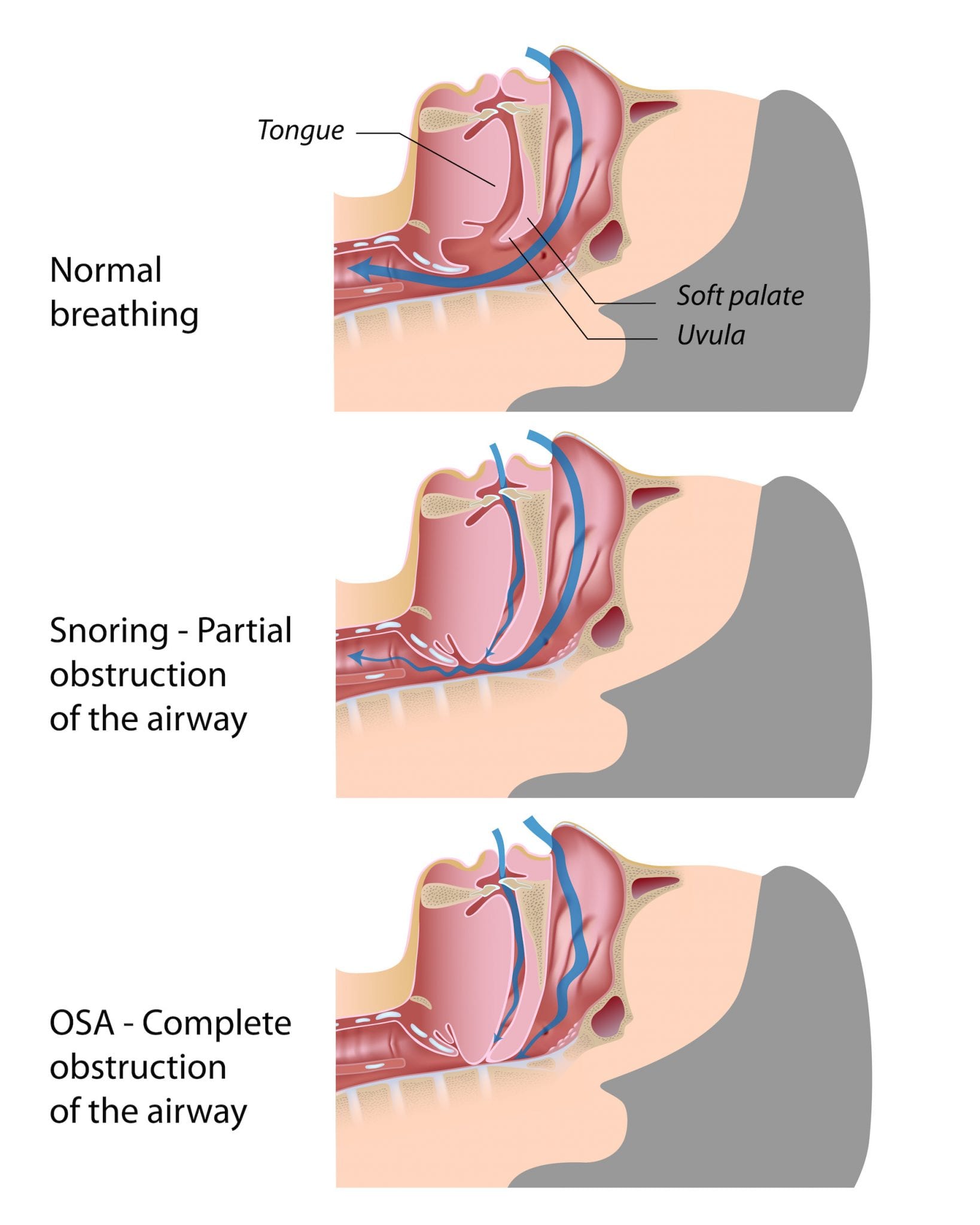Sleep
Solutions
We help you sleep better.
Do you think you have sleep apnea? Take a moment and ask yourself these question:
1. Do you snore?
YesNo
2. Are you excessively tired during the day?
YesNo
3. Have you been told you stop breathing during your sleep?
YesNo
4. Do you have a history of hypertension?
YesNo
5. Does your neck measure over 17 inches (male) or over 16 inches (female)?
YesNo
Based on your answers you have a negative screening for sleep apnea. To be certain, please contact Pulmonary Consultants of Southwest Florida to schedule an appointment.
Approximately 30 million Americans are victims of a sleep disorder called sleep apnea. Apnea is Greek for “without breath.” Those suffering from sleep apnea may stop breathing in their sleep; this can happen hundreds of times per night.
How does it occur?
During normal sleep, throat muscles relax. If the throat is crowded, the airway collapses during sleep. Airflow stops and the blood oxygen level drops, which causes the brain to wake up. If you have sleep apnea, this cycle may repeat hundreds of times during the night while you have no idea it is happening. Common symptoms of sleep apnea are:
- Fatigue and tiredness during the day
- Loud snoring
- Waking up experiencing choking or gasping
- Not feeling rested in the morning or satisfied with a night’s sleep
- A strong desire to take a daily afternoon nap
- Unexplained accidents or errors
- Morning headaches
Other common characteristics of people prone to sleep apnea are:
- Obesity
- Small jaw, thick neck
- High blood pressure
- Restless sleep, the repeated struggle to breathe can be associated with a great deal of movement
- Depressed mood and/or irritability
- Reduced sex drive and / or impotence
- Snoring, gasping, and / or choking during sleep

SYMPTOMS OF SLEEP APNEA

Loud or Frequent Snoring
Silent Pauses in Breathing
Choking or Gasping Sounds
Daytime Sleepiness or Fatigue
Unrefreshing Sleep
Insomnia
Morning Headaches
Nocturia (waking during the night to go to the bathroom)
Difficulty Concentrating
Memory Loss
Decreased Sexual Desire
Irritability
How serious is sleep apnea?
At Pulmonary Consultants of Southwest Florida in Cape Coral, we take sleep apnea seriously. Sleep apnea is a potentially life-threatening condition. When left undiagnosed, severe sleep apnea can cause an irregular heartbeat, unstable or high blood pressure, heart attack, stroke, cardiac arrest during sleep, or a harmful accident. Increased daytime sleepiness poses a serious risk of automobile accidents, as well as impaired functioning in the workplace or other environments. When left untreated, sleep apnea tends to progressively worsen and may cause partial or complete disability and potentially death.
How is it diagnosed?
After an initial consultation with our pulmonary doctor, an overnight sleep study called polysomnography will be performed to diagnose sleep apnea. The sleep study will measure your heart rate, brain waves, chest movement, air flow and blood oxygen levels while you sleep comfortably on a Tempur-Pedic® mattress in a hotel setting. If you have special needs, we will work with you to accommodate them to ensure a safe and relaxing environment. Other sleep disorders that cause unrestful sleep may also be detected during this sleep study. Our testing involves no pain and is covered by most insurance plans.
How is sleep apnea treated?
At Pulmonary Consultants of Southwest Florida, we treat sleep apnea aggressively so that our patients can get back to enjoying a life without sleep deprivation. The most commonly prescribed treatment for sleep apnea is usage of a continuous positive airway pressure (CPAP) machine. A CPAP machine delivers air pressure through a small mask that the patient wears while sleeping. The pressure acts as an “air splint” which keeps the throat open, eliminating obstruction and preventing apneas.
Sleep becomes uninterrupted and restorative, dramatically improving daytime functioning and overall health. Sleep apnea can also be treated surgically, however, the success rate varies greatly. Our respiratory therapist also performs scheduled mask fits and machine checks to ensure our patient’s comfort and compliance. We also strive to help patients that are having problems adjusting to the transition of wearing their CPAP.
Want to Schedule an Appointment?
Call us at 239.574.2644 to schedule your appointment today.
Quick Answers
Should you need fast relief or want to know more about your condition, you may find answers that fit your situation on our Facebook page and visiting these resources.

